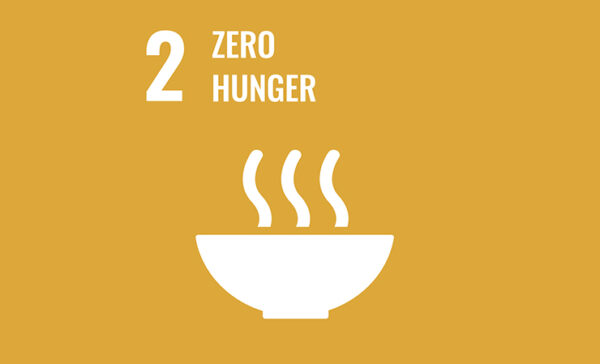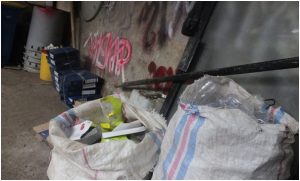
2.2.1. Campus food waste tracking
Measure the amount of food waste generated from food served within the university.
The Faculty of Law really put an effort to eliminate hunger as well as to achieve food security and good nutrition by providing nutritious food at the faculty’s canteens. In 2021, the whole faculty including the canteens is on lockdown. Thus, there was no food waste because the faculty and the canteen were not operating. Before the COVID-19 pandemic, food waste was collected in containers and will be picked up by the cleaners from the university to be disposed.
evidence link : https://drive.google.com/drive/folders/10h8YighdHy1KFDLT8GJBDoPJjmS27J3Q
2.2.2. Campus food waste

At FHUI, there is a garbage shelter as the last stop before being transported by a garbage truck that will be processed at the University of Indonesia Landfill (TPS). But previously, these wastes have been separated between paper waste, organic waste, plastic waste and bottle waste in the trash cans available in the FHUI environment. Bottle waste will be collected and reprocessed by collectors while organic waste will be processed by TPS UI.
evidence link : Pembangunan Berkelanjutan – Fakultas Hukum Universitas Indonesia (ui.ac.id)
Student food insecurity and hunger
“Have a programme in place on student food insecurity.”
2.3.2. Students and staff hunger interventions
Provide interventions to target hunger among students and staff (e.g. including supply and access to food banks/pantries).
2.3.3. Sustainable food choices on campus
Provide sustainable food choices for all on campus, including vegetarian and vegan food.
all food outlets
selected food outlets
2.3.4. Healthy and affordable food choices
Provide healthy and affordable food choices for all on campus.
all food outlets
selected food outlets
2.4.1. Proportion of graduates in agriculture and aquaculture
Number of graduates
Number of graduates from agriculture and aquaculture courses including sustainability aspects
Access to food security knowledge
Provide access on food security and sustainable agriculture and aquaculture knowledge, skills or technology to local farmers and food producers.
Free
Paid
2.5.2. Events for local farmers and food producers
Provide events for local farmers and food producers to connect and transfer knowledge
Free
Paid
2.5.3. University access to local farmers and food producers
Provide access to university facilities (e.g. labs, technology, plant stocks) to local farmers and food producers to improve sustainable farming practices.
Free
Paid
Prioritise purchase of products from local, sustainable sources.
